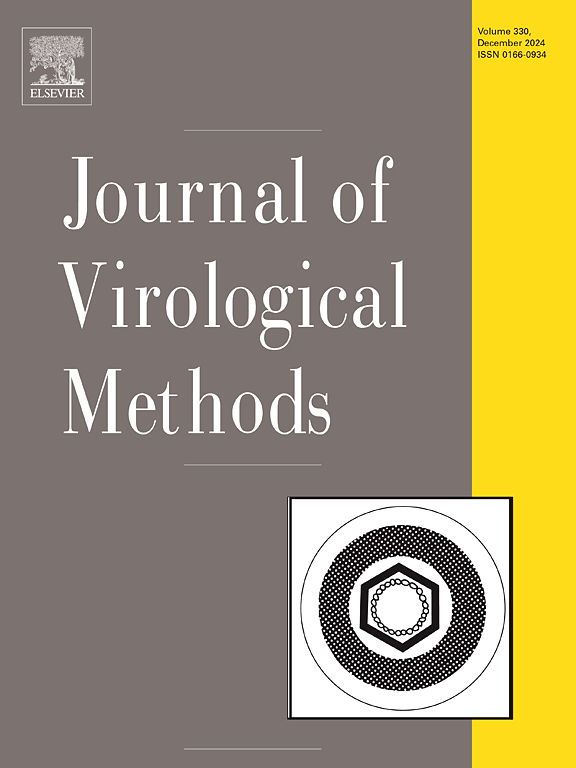Room temperature storage and shipping of encapsulated synthetic RNAs as quality control materials for SARS-CoV-2 molecular diagnostic assays
IF 1.6
4区 医学
Q3 BIOCHEMICAL RESEARCH METHODS
引用次数: 0
Abstract
The Coronavirus pandemic unveiled the unprecedented need for diagnostic tests to rapidly detect the presence of pathogens in the population. Real-time RT-PCR and other nucleic acid amplification techniques are accurate and sensitive molecular techniques that necessitate quality control strategies and stable quality control materials. To meet this need, Twist Bioscience has developed and released synthetic RNA controls. However, RNA is an inherently unstable molecule needing cold storage, costly shipping, and resource-intensive logistics. Imagene provides a solution to this problem by encapsulating dehydrated RNA inside metallic capsules filled with anhydrous argon, allowing room temperature and eco-friendly storage and shipping. This technology initially developed for DNA storage has been successfully applied to RNA and other biospecimen and extensively validated through real time and accelerated aging. Here, RNA controls produced by Twist Bioscience were encapsulated in RNAshells and distributed to several laboratories that used them for COVID-19 detection tests by amplification. One RT-LAMP procedure, four different RT-PCR devices and 6 different PCR kits were used. The amplification targets were genes E, N; RdRp, Sarbeco-E and Orf1a/b. RNA retrieval was satisfactory, and the detection was reproducible. RNA stability was checked by real-time (3 years at room temperature) and accelerated aging (16 h at 90 °C, corresponding to approximately 10 years of storage at 25 °C, according to our previously published Arrhenius study for encapsulated RNA). The results were not significantly different from those for unaged capsules. This room temperature RNA stability allows the preparation and distribution of large strategic batches which can be stored for more than 10 years a long time and used for standardization processes between detection sites. Moreover, this provides the advantage of single-use and field usability across varying temperatures. Consequently, this type of encapsulated synthetic RNA, processed at room temperature, can be used as internal quality control materials for the SARS-Cov-2 virus as well as for detection of other RNA viruses.
作为SARS-CoV-2分子诊断检测质量控制材料的合成rna的室温储存和运输。
冠状病毒大流行表明,人们对诊断测试的需求前所未有,需要快速检测人群中是否存在病原体。实时RT-PCR等核酸扩增技术是精确、灵敏的分子技术,需要质量控制策略和稳定的质控材料。为了满足这一需求,Twist Bioscience开发并发布了合成RNA控件。然而,RNA本身是一种不稳定的分子,需要冷藏、昂贵的运输和资源密集型的物流。Imagene通过将脱水RNA封装在充满无水氩气的金属胶囊中来解决这个问题,从而实现室温和环保的存储和运输。这项技术最初是为DNA存储而开发的,现已成功应用于RNA和其他生物标本,并通过实时和加速老化进行了广泛验证。在这里,Twist Bioscience生产的RNA对照被封装在rnasshell中,并分发给几个实验室,通过扩增将其用于COVID-19检测测试。使用1个RT-LAMP程序,4种不同的RT-PCR装置和6种不同的PCR试剂盒。扩增目标基因为E、N;RdRp, Sarbeco-E和Orf1a/b。RNA检索结果令人满意,检测结果重复性好。通过实时(室温下3年)和加速老化(90°C下16小时,对应于25°C下大约10年的储存,根据我们之前发表的Arrhenius对封装RNA的研究)来检查RNA的稳定性。结果与未老化胶囊无显著差异。这种室温RNA稳定性允许制备和分发大型战略批次,这些批次可以保存10年以上的时间,并用于检测站点之间的标准化过程。此外,这提供了在不同温度下的单次使用和现场可用性的优势。因此,在室温下处理的这种封装的合成RNA可以用作SARS-Cov-2病毒的内部质量控制材料,也可以用于检测其他RNA病毒。
本文章由计算机程序翻译,如有差异,请以英文原文为准。
求助全文
约1分钟内获得全文
求助全文
来源期刊
CiteScore
5.80
自引率
0.00%
发文量
209
审稿时长
41 days
期刊介绍:
The Journal of Virological Methods focuses on original, high quality research papers that describe novel and comprehensively tested methods which enhance human, animal, plant, bacterial or environmental virology and prions research and discovery.
The methods may include, but not limited to, the study of:
Viral components and morphology-
Virus isolation, propagation and development of viral vectors-
Viral pathogenesis, oncogenesis, vaccines and antivirals-
Virus replication, host-pathogen interactions and responses-
Virus transmission, prevention, control and treatment-
Viral metagenomics and virome-
Virus ecology, adaption and evolution-
Applied virology such as nanotechnology-
Viral diagnosis with novelty and comprehensive evaluation.
We seek articles, systematic reviews, meta-analyses and laboratory protocols that include comprehensive technical details with statistical confirmations that provide validations against current best practice, international standards or quality assurance programs and which advance knowledge in virology leading to improved medical, veterinary or agricultural practices and management.

 求助内容:
求助内容: 应助结果提醒方式:
应助结果提醒方式:


